MercoPress. South Atlantic News Agency
Economy
-
Tuesday, July 28th 2015 - 06:13 UTC
Brazil central bank survey confirms worst economic performance since 1990

Analysts expect Brazil's economy to contract by 1.76% this year, marking its worst performance since 1990, with the inflation rate hitting 9.23%, the Central Bank said on Monday.
-
Monday, July 27th 2015 - 06:58 UTC
Uruguay's meat exports in almost seven months close to the billion dollars
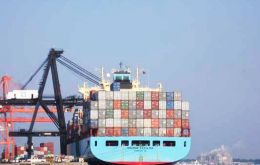
Uruguay exports of meats reached 978 million dollars between January and 18 July of which 83% beef; 5,5% offal; 3% ovine; other industrialized meats 2.7% and 1.5% horse, according to the latest release from the country's Meats institute economics office, Inac.
-
Monday, July 27th 2015 - 06:45 UTC
Banks forecasting two years of economic contraction for Brazil
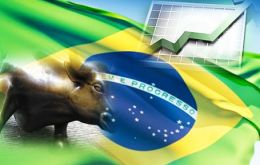
Banks in Brazil are now forecasting economic contraction in 2016 and if this proves correct it will be first time Latin America's largest economy shrinks two years running since the Great Depression.
-
Saturday, July 25th 2015 - 06:16 UTC
Petrobras workers on a nationwide 24 hour strike to protest sale of assets
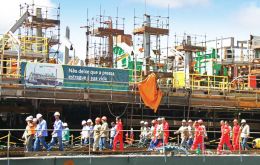
Tens of thousands of workers at Brazil's state-owned Petrobras went on a nationwide 24-hour strike on Friday to protest the oil company's plans to sell 15.1 billion dollars worth of assets by the end of next year to help pay off a debt of about 120 billion dollars.
-
Saturday, July 25th 2015 - 05:24 UTC
Economic activity in Argentina picking up, according to Indec
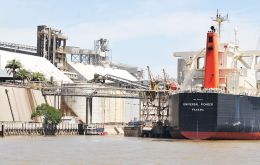
Economic activity in Argentina has increased 2.2% in May, compared to the same month of 2014, according to the country's stats office, Indec. Compared to April this year, economic activity has grown 0.8%, the Monthly Economic Activity Index revealed.
-
Friday, July 24th 2015 - 11:18 UTC
More job losses coming to U.S. shale

With the recently concluded nuclear deal between Iran and the P5+1 countries, oil prices have already started heading downward on sentiments that Iran's crude oil supply would further contribute to the already rising global supply glut. The economic crisis in Greece, OPEC's high production levels and China's market turmoil have created more pressure on oil prices, making a price rebound look highly unlikely in the near future.
-
Friday, July 24th 2015 - 11:02 UTC
US filings for unemployment benefits fall to its lowest since 1973
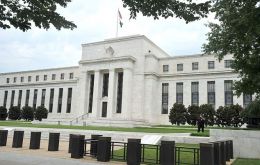
The number of US citizens filing new applications for unemployment benefits last week dropped to its lowest level in more than 41 and a half years (1973), suggesting the labor market maintained a sturdy pace of job growth in July.
-
Friday, July 24th 2015 - 10:39 UTC
Brazilian currency and markets drop on latest fiscal savings goals

Brazil's currency, the Real, tumbled on Thursday after the government announced it would slash its fiscal savings goals for this year and next, raising investor fears that the country may lose its investment-grade credit rating.
-
Thursday, July 23rd 2015 - 08:58 UTC
Discouraging outlook for commodities this year confirms World Bank
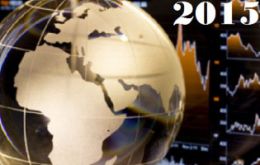
The outlook for commodities remains grim for this year, except that oil will fall a bit less than previously forecast, the World Bank said. Average prices for fuels such as crude, natural gas and coal will tumble 39% from 2014, while those for materials like metals and fertilisers will fall about 12%, the Washington-based lender said in its quarterly “Commodity Markets Outlook” released Wednesday.
-
Thursday, July 23rd 2015 - 08:52 UTC
Brazil's recession expected to continue next year according to top bank
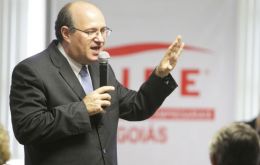
Brazil's recession will extend into next year, hurting President Dilma Rousseff's efforts to shore up public finances and arrest a sharp increase in unemployment, Itau Unibanco's chief economist said in a report on Wednesday. Ilan Goldfajn forecasts a drop of 2.2% in 2015 and 0.2% in 2016, down from previous estimates for a decline of 1.7% in 2015 and an increase of 0.3% in 2016.
